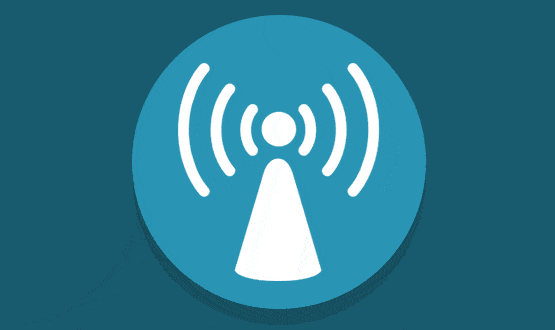While on a home visit the other day, I got a call from reception about another visit that had come in late and couldn’t be put off.
I wasn’t quite sure where the house was, so I opened up the map app on my smartphone. The 3G signal in Sandbach is rubbish for most networks and GPRS is so slow for maps I normally can’t be bothered to wait for the app to load.
However, as a BT broadband customer I’m a member of BT Fon. My BT Fon app had pinged as I climbed into my car to say it had connected to a wi-fi hotspot (presumably from one of the nearby houses).
So I didn’t have a problem with speed; and I even used Google Street View to work out which house I needed to call at. Given that it was a farm, this really helped – and saved me quite a lot of time.
Wi-fi is cool
Free wi-fi is cool and can make you feel good; which is why cafes and shops offer it as a plus to their customers.
We are currently taking our youngest son to the orthodontist for braces. In the surgery waiting room, I can log on to BT wi-fi that is rated at 20Meg or ten times faster than I have at home; so I’ve started updating my apps when I’m there.
It makes sitting in their waiting room a pleasure. Now this makes me think “why can’t we do the same at the surgery?”
The dentist presumably buys broadband from BT. I think that BT Fon or Openworld is enabled by default; it is certainly enabled on my home BT router.
At the surgery, we don’t buy our broadband; we have an N3 connection. But that, strangely, is supplied by BT. So it strikes me that it shouldn’t be that difficult to enable all 8,000 GP surgeries in the country to have the same thing; a free-to-use wi-fi connection for patients waiting.
Of course, cost is an issue. It might cost to put in a wi-fi access point or for the router to keep the traffic secure. But I think I’ve thought of a way for it to pay for itself; and perhaps even reduce the cost of the N3 connection to the NHS.
So why don’t we have free wi-fi in the NHS?
My idea is this. When you go to a hotel or a conference facility, and you connect to the internet, you tend to be taken to a landing page that asks you to log-on by giving your room number or a code – or sometimes by asking for your email for marketing purposes.
Well, why can’t we do the same? Have a surgery landing page – that welcomes patients to the surgery – asks people some key questions and gives them, in return, ten minutes’ or half an hour’s free wi-fi access?
A surgery has to collect all sorts of information on its patients these days; up to date mobile numbers, email addresses, user feedback… Would the surgery pay BT for this information? Would the commissioners pay to collect the statistics they need?
Let’s say patients were asked to rate the surgery. They could be asked for daily updates on how easy it was to get through on the phone and whether or not reception was clean. Or they could be asked to rate the care. Or provide information on how long had they to wait.
Commissioners could have live data daily from all 8,000 practices. If all this is a bit much, could BT just sell survey time to others?
Would large advertising companies cover the costs of installation to have a captive audience? This is how You Tube works at the moment – to watch the clip I want to watch, I often have to watch an advert. Some long clips make me watch several.
Perhaps advertisers would do the same – very five minutes you would have to watch a 30 second advert? The money in commercial advertising could be quite large; could it be enough to make the N3 network pay for itself?
Even staff can’t connect
Strangely, on the same evening as I had to fit in my extra home visit, there was a story on BBC news online about Glasgow piloting city wide free wi-fi.
This prompted another thought; given that I have an NHS smartcard that authenticates who I am and what I do, why can’t it be used across the NHS estate?
It used to drive me mad when I worked for my local primary care trust and then the clinical commissioning group that we would have a meeting at the local hospital and not be able to log onto its wi-fi.
The PCT IT had been reasonably forward thinking and had a common network and log-on across all of its directly connected buildings. This allowed me to connect which ever PCT building I sat in; but I couldn’t do the same if I went elsewhere.
I recently visited another hospital for a meeting in my now-provider role and wanted to give a presentation. Knowing full well that I wouldn’t be able to log-on either as an NHS member of staff or as a guest I made sure I had an offline version.
But it impeded me in that the people I was presenting to asked for a copy of some protocol that was in an online folder that I couldn’t get into.
Bluetooth smartcard readers now exist, so in principle the NHS smartcard can be used with most modern devices. Why then can’t every NHS building (administrative or clinical) provide secure wi-fi to NHS smartcard holders, and either paid or generating wi-fi access to other visitors?
Time to think like a business
You might say there are more important things for NHS IT people to be doing. But I would argue that it is impeding business to not be able to connect.
And I really do think that it should be possible to make survey or advertising revenue from patients and visitors to pay for the kit; and even save money overall.


Dr Neil Paul
Dr Neil Paul is a full time partner at Sandbach GPs; a large (22,000 patient) practice in semi-rural Cheshire. He is also one of the directors of 4GPs Ltd. Dr Paul has been involved in primary care IT and health service management for more than ten years in various roles, including PEC member and urgent care lead. In his spare time, he writes medical iPhone software and is a keen photographer.
Last year the NHS Hackday community created a survey to find out how many clinicians have access to wi-fi, how many patients have access, and how this impacts patient care. The survey is still live and results so far have shown that only 20% of NHS staff have access to wi-fi at work.

